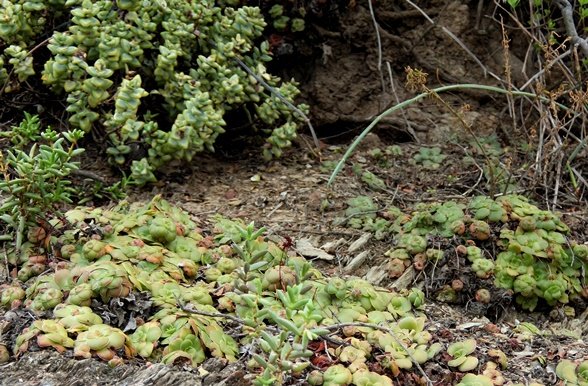Crassula gathering

Author: Ivan Lätti
Photographer: Thabo Maphisa
Birds of a feather flock together! Dense to sparse stands of same species plants are found in nature everywhere. People often plant monoculture crops for commercial reasons.
But the veld is at its best when filled with heterogeneous surprises of all who spend their lives cheek by jowl. The natural state on earth tends to celebrate diversity in ever-changing, living assortments of dissimilar types. Dramatically unlike species may deal effectively with the same prevailing conditions of a particular terrain and climate; and there are so many such different microclimatic regions with all kinds of soil types.
Sparsely vegetated, desert-like parts, whether cold, warm or waterless, may be short on species and therefore species mixes. Temperate or warm, high rainfall and deep soil regions may house record-setting numbers of species in unique combinations. Centres of endemism have distribution overlap among restricted range species or represent rich mixes of endemics.
In picture, three crassulas hog the floor, occupying this secluded spot in the Kammanassie foothills in generic exclusivity. The stems bearing the triangular leaves belong to Crassula rupestris; the ones with the oblong leaves are C. subaphylla and the rosettes on the ground are C. orbicularis.
Numerous other plant species grow close by, but this nook is a small, though generically pure Crassula hegemony, for now! For who knows what seeds have already been blown in from unrelated bystanders that bloomed in recent times, or will tomorrow?
Every individual life gains its uniqueness from endless dances of chance. Millions of coincidental happenings over days, years, centuries and aeons cause each life to occur, succeed or fail on (or from) the spot and in the time where it is born, hatched, germinated or otherwise originated.
And its offspring, many generations from now, may not even be of the same species as it was. The same holds for its ancient ancestors.

